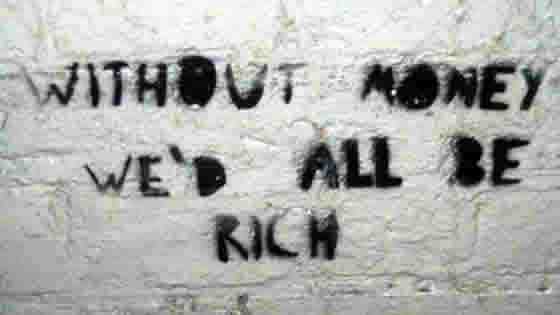Money is ubiquitous. It pervades our thoughts, feelings, actions and behaviours.
Many believe money buys power, freedom, choice and peace while others believe the opposite.
Money is merely a method of exchange. Instead of trading a chicken for some cloth or some advice for some labour, money broadens the economy in which we can trade our goods and services.
As entrepreneurs, our relationship with money matters. We have times where money is abundant and times when it is not. If we do not manage our relationship with money, we experience stress and this stress has the capacity to derail our ability to perform at peak performance. This has the potential to spiral into a dark place.
I’ve been an entrepreneur my whole life. I delivered newspapers as a young girl, worked the restaurant scene through university, real estate at age 21, a brief bout as a bike shop owner, back to real estate and now, The Nature of Real Estate. Pay cheque? Never. I’ve learned something important in the past 40 years. If we want to be happy, we need to make more than we spend, or as some would say, spend less than we make. (It’s a point of view thing).
I’ve met very happy people who make less than $20,000 a year and I’ve met very unhappy people who make over $3,000,000 per year.
Imagine – a small family living on an acreage growing their own food, living a healthy lifestyle in a beautiful setting, having time for each other and to ponder the beauty of the world. They earn an income of $20,000 working for a local non-profit that has deep personal meaning to them. The cost of their lifestyle is $17,000 per year and they are able to tuck $3000 per year away for the future. They carry no debt and over the years have built up a comfortable nest egg of savings. Stress level? Low. Happiness? Likely high.
Now imagine – a family living in a prestigious home in a major city. It is super modern and leading edge. It has car elevators, computer controlled systems, important art and so on. The family also has a vacation home. The children in this family are involved in many activities and attend private school. The parents both work at very senior levels in the corporate world and experience high levels of responsibility in those positions. This family also has 2 full-time domestic employees to help keep things running. They earn a combined income of $1,000,000 but, much of that comes from performance bonuses. Their monthly financial responsibility is about $50,000. They usually make that much but not always. Some months they are juggling debt to meet their expenses. They have investments but, they are heavily leveraged and are invested in volatile stocks. Stress level? High. Happiness? Likely low.
Most people fit in somewhere in between these two extremes.
Living a life of financial abundance or a life of meaning and purpose with limited financial compensation can both be awesome choices, but happiness is always a result of making more than you spend. In our first example, if the small family living in rural Canada was accumulating credit card debt each month, their happiness would erode significantly. If our second example family made $2,000,000 and kept their expenses the same, their stress would drop and their happiness increase – likely dramatically.
How does this apply to real estate? If you want to be happy, don’t spend everything you make in the good markets. Establish a lifestyle that is sustainable on an income you know you can make even in slower markets – And invest the rest.
Find a financial planner that you can trust. That’s not easy. The markets are tricky and there are many financial planners that are not sophisticated enough to understand them. I use Mark Van Graft in Ontario. I trust him. I don’t usually offer referrals but I feel 100% confident recommending Mark. He is not a high risk investment advisor so if your profile is high risk, he may not be your best choice.
If you would like for me to connect you with Mark, email me suzecumming@shaw.ca

